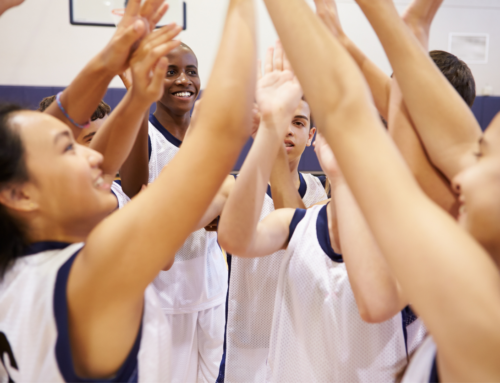The easiest path to reach such a destination is what’s visualized for any high school student-athlete who has their sights set on participating in college athletics.
What does that mean, exactly? There isn’t a student-athlete out there who wouldn’t want to feel the love from multiple college coaches at the same time during the recruitment process. However, that only happens for a small number of athletes. They’re called blue-chip recruits.
You know who they are because they’re identified by places like ESPN, 247 Sports, and Rivals as some of the country’s best high school athletes. And since college football and basketball gets the most coverage in today’s sports media, these top recruits typically play one of those two sports.
What about all the rest, then? Anyone not considered a blue-chip recruit is a yellow-chip recruit. While these athletes are still legitimate and enjoy a fruitful college career, they’re considered a tier below the nation’s top recruits. With less (or even no) coverage of what they’re doing in high school, yellow-chip recruits must get themselves involved.
That leads us to the one skill these student-athletes must learn as they embark on this process: knowing how to advocate and market themselves to college programs. Instead of coaches initiating contact, many yellow-chip recruits are the ones reaching out first to get on the radar of programs they’re interested in joining.
There are many ways an athlete can learn this skill. However, the following three will help you hit the ground running.
Creating an Athletic Resume
This is the simplest way for a college coach to get all the necessary information about you in one document. Don’t forget. Their prospective student-athlete pool is very large, so you want to make it as easy as possible for them to distinguish you and your credentials from others.
There is no one “right way” to format an athletic resume, and there are tons of examples on the interwebs to help provide some ideas. Certain things need to be on this document, which includes both academic and athletic information.
The academic information for these purposes should include:
- Your high school, current cumulative GPA
- Class rank, PSAT/SAT or ACT scores
- Any academic awards or honors
- Anticipated major of study (but only if you know, and it’s OK if you don’t!)
Concerning athletics, you’ll want to include: the name and contact information for your high school or club coach, any other relevant information regarding travel/club/AAU teams, relevant personal details (like position, height, weight, date of birth, etc.), any awards you’ve won (individual and team), and any statistics that are available to you.
Creating a Highlight Video
All the information provided on an athletic resume is great, especially if you’re doing initial outreach via email. However, many coaches won’t seriously consider recruiting before actually seeing you play.
Although the preferred way for most is to see recruits play in person, sending a highlight video gives them a good sense of your athletic ability.
Highlight videos should be no more than five minutes and have time dedicated to both skill demonstration and in-game clips where you can be easily identified. You can get one from CaptainU.
Attending the Right Showcases/Clinics
College showcases and clinics are an excellent way for high school student-athletes to get in front of many college coaches at one time. Of course, there still needs to be a plan of attack regarding these specific opportunities.
If you’re serious about playing a sport in college, chances are you’ve already taken the steps to evaluate where your athletic and academic skills currently lie. These initial evaluations will help inform which showcases and clinics are the best to attend and display your skills to coaches.
It’s also essential to have this align with your wants and desires. If you’re focused on playing baseball at a smaller, Division III school, it makes the most sense to attend showcases with those types of coaches in attendance.
While being seen is vital toward getting a chance to play at the next level, it’ll be the most productive usage of your time and energy to make sure the people you want to get evaluated by will be there to watch.
Article originally appeared on stack.com





